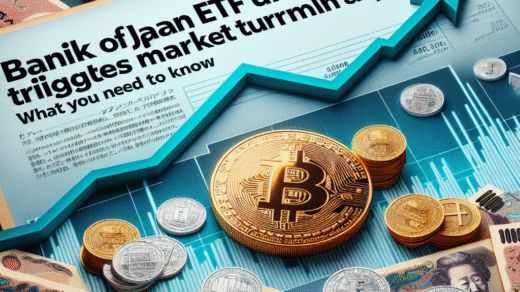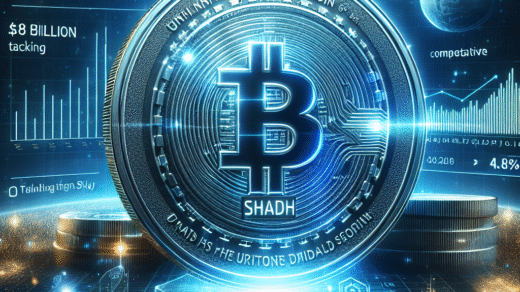Itaú Unibanco Explores Launch of Its Own Stablecoin Amid U.S. Regulatory Developments
Itaú Unibanco, Brazil’s largest bank by assets, is making headlines as it considers the issuance of its own stablecoin. This strategic move comes at a time when regulatory discussions are evolving and U.S. financial institutions are gradually making their foray into the cryptocurrency sector. Guto Antunes, the head of digital assets at Itaú, indicated that the bank’s decision could significantly depend on the outcomes of American institutions as they navigate their own stablecoin rollouts.
The Growing Importance of Stablecoins
At a recent industry event in São Paulo, Guto Antunes highlighted the increasing momentum behind blockchain-based settlement systems. He stated, “Itaú has always had stablecoins on its radar. We cannot ignore the strength that blockchain has to settle transactions atomically.” This statement underscores the bank’s proactive stance in exploring digital financial solutions that align with global trends.
Stablecoins are gaining traction worldwide as they offer the benefits of cryptocurrency while maintaining a stable value pegged to fiat currencies. This unique feature makes stablecoins particularly appealing for transactions and remittances, as they mitigate the volatility commonly associated with cryptocurrencies. The renewed interest in stablecoins is not just a regional phenomenon; it reflects a broader shift in the financial landscape as institutions recognize the potential of blockchain technology.
U.S. Political Shifts Influence Brazil’s Stablecoin Outlook
The renewed focus on stablecoins in Brazil is closely tied to recent political developments in the U.S. Lawmakers have recently shifted their stance, opting to reject a central bank digital currency (CBDC) in favor of encouraging private stablecoin alternatives. This move aims to preserve the dollar’s dominance in the global economy and could potentially influence Brazil’s regulatory approach towards stablecoins.
In Brazil, regulators are actively conducting a public consultation—Consulta Pública No. 111—focused on how stablecoins might integrate into the existing financial framework. This initiative reveals a willingness to explore innovative financial solutions while ensuring regulatory compliance and consumer protection.
Awaiting Regulatory Clarity
As Itaú Unibanco considers venturing into the stablecoin market, Guto Antunes stressed the importance of understanding the regulatory environment. He mentioned that the bank is waiting to see what rules the Brazilian central bank establishes before advancing any internal projects related to stablecoins. This cautious approach reflects the bank’s commitment to navigating the complex regulatory landscape surrounding digital currencies.
Concerns Over Self-Custody Regulations
Antunes raised concerns regarding a proposed ban on self-custody in Brazil’s draft stablecoin regulations. Such regulations could have significant implications for how individuals and institutions manage their digital assets. The ability to self-custody is a critical feature for many cryptocurrency users, as it provides enhanced security and control over their assets. As Brazil continues to shape its regulatory framework, it will be essential for stakeholders to engage in discussions that balance innovation with consumer rights.
Impact on Brazilian Financial Institutions
It’s important to note that Brazil has already barred major pension funds from investing in cryptocurrencies, signaling a cautious approach from regulators. This restriction reflects broader concerns about the volatility of cryptocurrencies and the need for regulatory safeguards to protect investors. However, as stablecoins present a more stable alternative, the evolving regulatory landscape could pave the way for broader adoption among Brazilian financial institutions.
The Future of Stablecoins in Brazil
The potential launch of a stablecoin by Itaú Unibanco could serve as a catalyst for further innovation within the Brazilian financial sector. If successful, it could encourage other banks and financial institutions to explore similar initiatives, ultimately leading to a more robust and competitive digital finance ecosystem in Brazil.
As the cryptocurrency landscape continues to evolve, the importance of regulatory clarity cannot be overstated. Brazilian regulators will need to strike a balance between fostering innovation and ensuring consumer protection, which will be crucial for the sustainable growth of the digital asset market.
Conclusion: A New Era for Brazilian Banking
Itaú Unibanco’s exploration of its own stablecoin reflects a significant shift in Brazil’s banking landscape. By embracing blockchain technology and stablecoins, Itaú is positioning itself as a forward-thinking institution ready to adapt to the changing financial environment. As regulatory discussions progress, the outcomes will shape the future of stablecoins in Brazil, paving the way for innovation and growth in the digital asset space.
For those interested in the world of stablecoins and cryptocurrencies, staying informed about the latest developments is key. Whether it’s understanding how to buy Bitcoin, Ethereum, or XRP, or keeping an eye on the evolving regulatory landscape, knowledge will empower users to navigate this exciting financial frontier.
If you’re eager to learn more about investing in cryptocurrencies, check out our guides on how to buy Bitcoin, how to buy cryptocurrency, and what XRP is. Additionally, explore our reviews of leading exchanges like Kraken, Binance, and eToro to find the best platforms for your trading needs.







